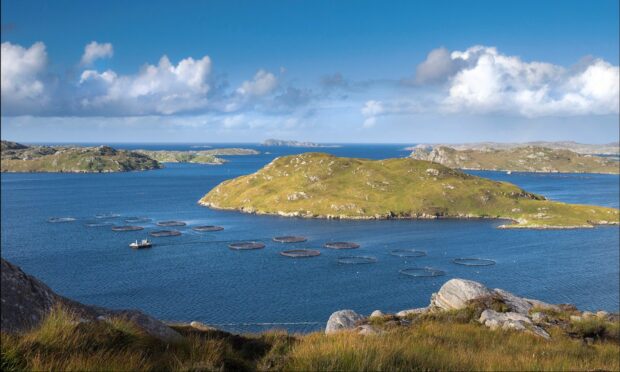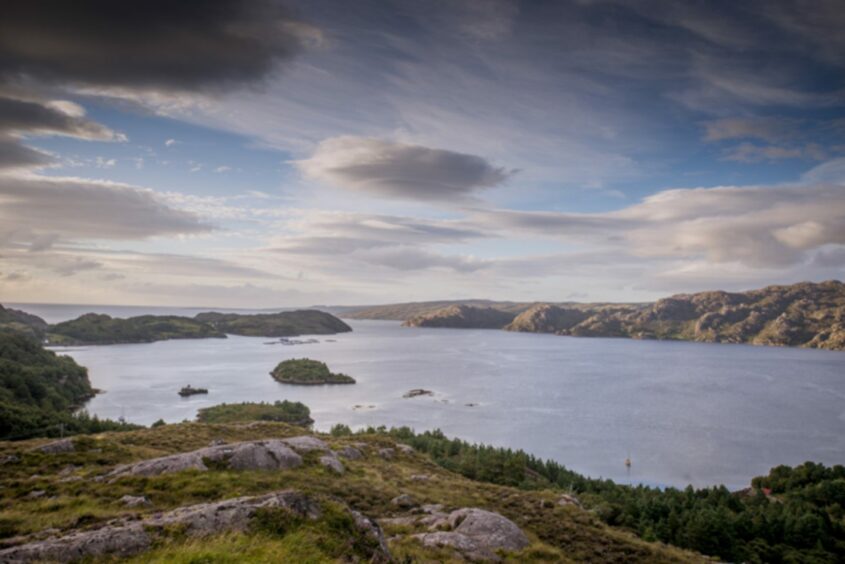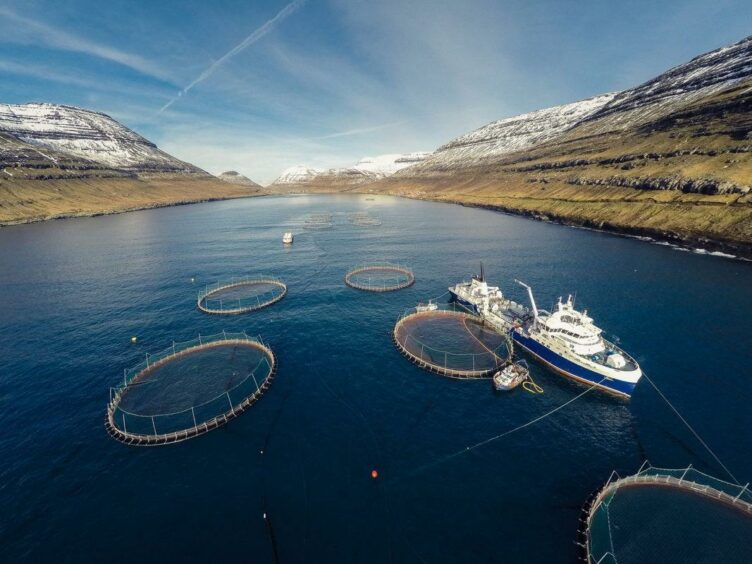The Scottish Salmon Company (SCC) fell into the red by more than £19 million in its first year under new ownership.
Fish deaths across its farming operations – both from unplanned mortalities and culling – cost the business more than £11m during the year to December 31 2020.
Accounts posted at Companies House show pre-tax losses of £19.37m, against profits of £19.51m a year earlier.
Turnover slid nearly 10% in the latest period, to £180.6m, as the firm suffered disruption to its operations due to the Covid-19 pandemic.
Edinburgh-headquartered SCC employs more than 600 people across 60 sites off the west coast and Outer Hebrides.
Faroese salmon farmer Bakkafrost announced its acquisition of the business from private equity investor Northen Link in September 2019 and recently unveiled “game-changing” investment plans for it.
In its latest annual report, Bakkafrost said its Scottish farms suffered an increase in fish deaths in August 2020, largely due to “biological issues induced by a severe rainfall in August”.
‘Biological challenges’
The group added: “History has demonstrated that biological challenges in the second half of the year have been a repeating pattern in the Scottish Salmon Company.
“This pattern is expected to be broken with the transformation… that we will be making in the Scottish operation in coming years.”
Last month Bakkafrost revealed ambitions to ramp up SCC’s annual output by 40% under a £711m investment plan.
The Faroese company said SCC had underperformed in the past but was poised to benefit from a strengthening of all parts of the supply chain.
“We are convinced the investment case is strong and see good upside potential.”
Runi Hansen, chairman, Bakkafrost.
Growth is expected to be generated through a combination of employing idle licence capacity and higher utilisation of existing licences by using large smolt.
Introducing Bakkafrost’s annual report, group chairman Runi Hansen said the acquisition of SCC had delivered new growth and development opportunities for the wider business.
He added: “We see this as a five-year turnaround case and during 2020 we have worked closely with the organisation in Scotland to begin transforming the operation using targeted investments and redefined processes, based on best practice.
“We are convinced the investment case is strong and see good upside potential.”
New hatcheries
Bakkafrost plans to construct three large and modern new hatcheries in Scotland, each using the same recirculating aquaculture system (RAS) technology used by the company in Faroe.
Mr Hansen said: “This will enable us to extend Bakkafrost’s large-smolt strategy to the farming operation in Scotland.
“By increasing the quality and smolt size to 500g (17.6oz) the cycle time at sea is reduced to 10-12 months, hereby reducing the biological risk as well as enabling sustainable growth in harvest volume.”
One of the new hatcheries will be at Applecross, where an existing operation will be expanded and converted for RAS technology.
Mr Hansen said: “This alone will be a game-changer for the farming operation in Scotland which will improve further when the next two hatcheries are finalised and the average size of smolts is increased to 500g.”
Bakkafrost’s Scottish operations also include two processing factories at Marybank, in Ross-shire, and Cairndow at the head of Loch Fyne, as well as a smokehouse in Stornoway.
Meanwhile, Bakkafrost has announced a total harvest of 6,900 tonnes of salmon – gutted weight – from its Scottish farms during the three months to September 31 2020.


